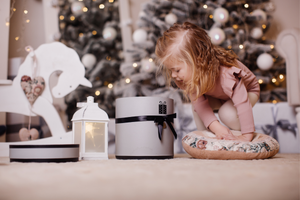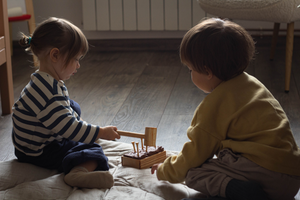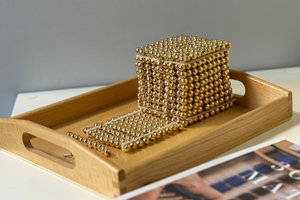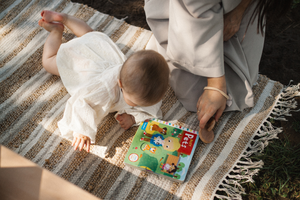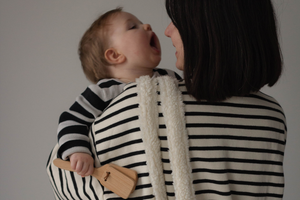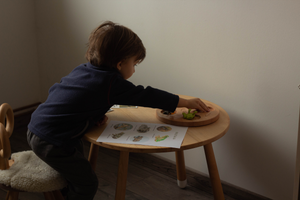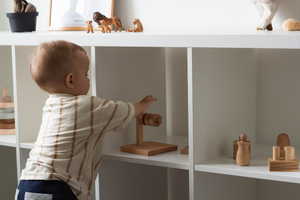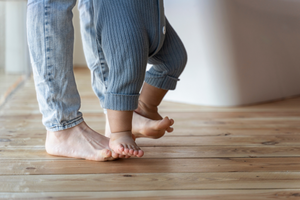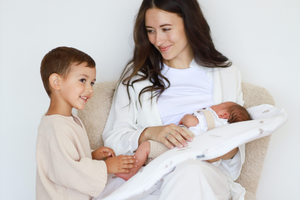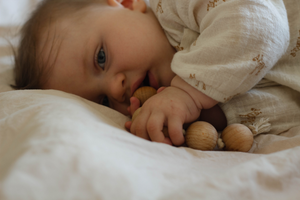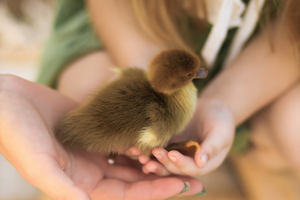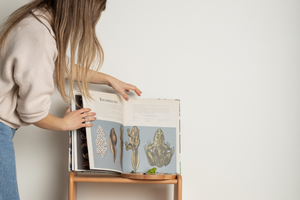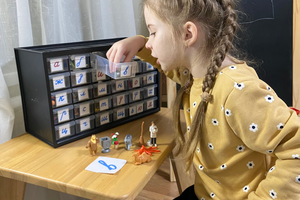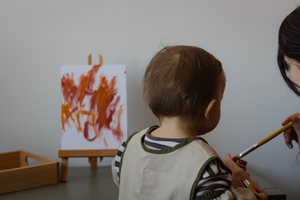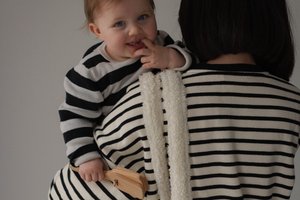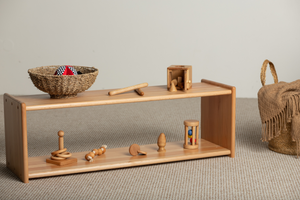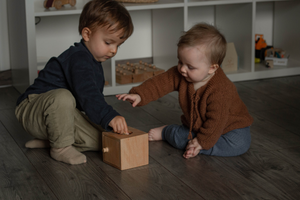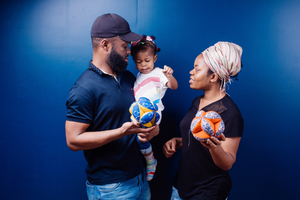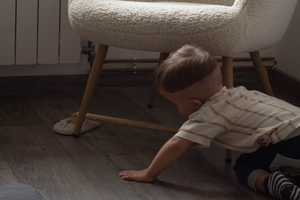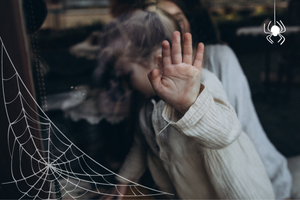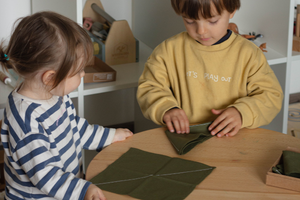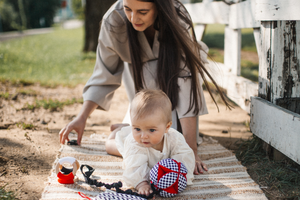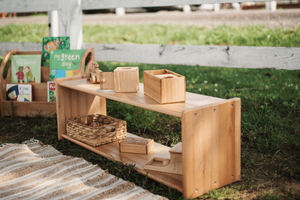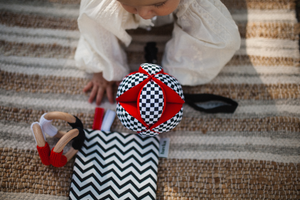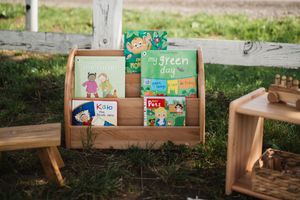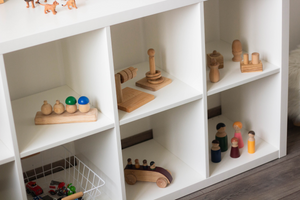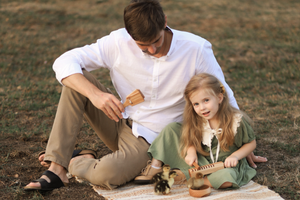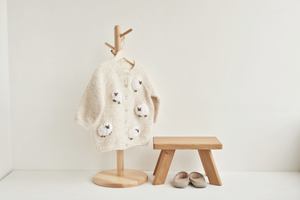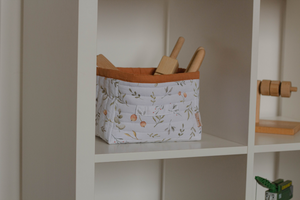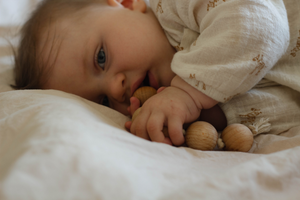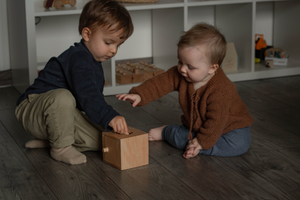On this delicate topic that concerns many, I've decided to share our experience with you, along with some basic recommendations from experts.
Let's start from the beginning... Having the baby sleep with us during the first few months isn't just convenient but also safe, as it reduces the risk of Sudden Infant Death Syndrome (SIDS). It also fosters a crucial bond between the child and parents and helps the baby adapt to the new world more quickly.
Yet, despite knowing this, I still remember all the warnings and advice I received when I mentioned that our daughter slept in our room. Until she was 4 months old, she slept in our room in her crib attached to our bed. My husband and I were fine with this arrangement, but not everyone else was. They would say things like, "Once she gets used to this, she'll never leave your bed." And doubts crept in: "Am I doing everything right? Should I start getting her used to sleeping in her own room?" It sounds a bit crazy now, but back in 2018, there weren't helpful blogs where you could read that you're not losing your mind and doing everything right.
.png)
My daughter seemed to sense my worry and was very anxious. At four months, I experienced a lactation crisis, and she constantly needed me. And in my head, I was still contemplating separate sleep. Luckily, my daughter was very determined, and whether it was her perseverance or my maternal instincts prevailing over nonsensical advice, we continued to sleep together.
When she turned one, we were moving houses, and all the stress from the move and renovation shattered all my plans regarding weaning and moving her. So, we postponed it until she was three. During this time, I found resources for reliable information and support. At two years old, I weaned her and started changing her sleep associations and teaching her to fall asleep independently. It was a long process that tested all my patience, but we did it. Closer to her third birthday, I felt ready to move her sleeping place to her own room, which until then was just a play area. We talked a lot about sleeping in her room, growing up, and her comfort. We chose her bed together, made it, and she picked her bedding. We organized everything nicely. Of course, it wasn't easy for me. She still woke up at night, and now I had to go to her room, calm her down, and tuck her in again. I'm glad we chose a teenage bed where I can lie comfortably next to her until she falls asleep. Although if I had chosen a smaller bed, it would have been a great explanation to her why I can't get into her bed. Then, for a while, we would nap together in our bed during the day and go to her room at night. Gradually, we transitioned completely to her own room.
.png)
Now, when my daughter is 5 and a half years old, she sleeps through the night, and we finally feel comfortable watching a movie or talking in the evening without waking anyone up. So, I don't regret a single day that we started this process when everyone was ready.
Here are a few points I would like to hear when I was trying to gently transition my child to her own room:
-
Neither you nor the child will be ready for a gentle transition as long as nighttime feedings continue. It will exhaust you, and you won't have the resources to keep it up.
-
The child's sleep should last at least 6 hours in a row for them to be ready for sleep in a separate room.
-
Clearly establish your usual bedtime rituals. Start doing them in the new place. For us, it was hygiene, then reading in the new bed, or a lullaby.
-
It's better to start the transition from daytime sleep in their own room. In our case, it was the opposite, but choose what's convenient for you.
-
Experts recommend gradually moving the crib away from your bed over a few weeks if the child has been sleeping in your room but in their crib. If not, you can start with putting them to sleep in their crib attached to yours.
-
Toys or personal items that help the child relax before sleep really work. My daughter still goes to sleep with a soft toy. This can be an anchor for her, so you can try it if you don't mind such a comfort.
.png)
-
For parents, this separation can be more difficult than for the child. This is absolutely normal, and most parents react this way. Many sleep experts even believe that the process of transferring a child to their own room is more difficult for parents than for the child. If you feel anxious about nighttime separation, analyze what causes your anxiety. For example, I was very afraid that my daughter would fall out of bed at night and get hurt. There were days when I panicked in the middle of the night, even though she was sleeping peacefully. You can eliminate these anxieties by organizing the sleep space safely and using a baby monitor. Maybe Montessori solutions in organizing the sleeping place would suit you here. I have a separate post about it - link.
.png)
Experts often recommend starting this separation very early, around six months. This is because children under 6 months of age don't have a spatial imagination, which is usually present in older children. Then you can skip a lot of gradual steps that older children may need for a successful transition to sleep in their own room. At around 6-7 months, the child will start paying more attention to their surroundings. By 8 months, the baby will understand more whether someone is in the room or not, which can lead to anxiety when separated. So, they recommend moving the baby to their own room before reaching these key milestones to ease the transition. However, personally, in my opinion as a mom, it's very important to look at your child. Because all these boundaries are approximate, and very early separation can be difficult for parents as well. You must understand for yourself whether it's really necessary and your desire or whether it's the influence of other people's opinions on how to raise your child.
What was your experience, and how do you plan the transition if you haven't done it yet?

